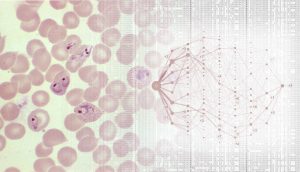 Mitochondria and chloroplasts have a rich and fascinating evolutionary history. They were once independent organisms which were captured and harnessed by cells billions of years ago. Since that capture, they have lost many of their genes, either completely or to the “host” nucleus. This transfer of genes is central to how the cell controls its organelle populations, and how the evolutionary game between organelles and hosts has played out over evolutionary time. The genes that remain in modern-day organelle genomes (mtDNA and cpDNA) are central both to our survival and to several devastating genetic diseases. We study this evolutionary process and how modern-day cells control and protect their internal populations of organelles.
Mitochondria and chloroplasts have a rich and fascinating evolutionary history. They were once independent organisms which were captured and harnessed by cells billions of years ago. Since that capture, they have lost many of their genes, either completely or to the “host” nucleus. This transfer of genes is central to how the cell controls its organelle populations, and how the evolutionary game between organelles and hosts has played out over evolutionary time. The genes that remain in modern-day organelle genomes (mtDNA and cpDNA) are central both to our survival and to several devastating genetic diseases. We study this evolutionary process and how modern-day cells control and protect their internal populations of organelles.
 As we built mathematical machinery to understand evolution, we found that it could also shed light on disease progression. Both processes involve the progression acquistion (or loss) of traits over time — for example, genetic features in evolution, and symptoms in individual patients. Another research focus of the group is using this machinery to understand disease progression in individual patients, and hence contribute to the growing field of personalised medicine and healthcare. The idea here is that by learning from large sets of individual patients’ symptoms (or other disease features) we can make more precise predictions about future behaviour and risks in new patients.
As we built mathematical machinery to understand evolution, we found that it could also shed light on disease progression. Both processes involve the progression acquistion (or loss) of traits over time — for example, genetic features in evolution, and symptoms in individual patients. Another research focus of the group is using this machinery to understand disease progression in individual patients, and hence contribute to the growing field of personalised medicine and healthcare. The idea here is that by learning from large sets of individual patients’ symptoms (or other disease features) we can make more precise predictions about future behaviour and risks in new patients.
